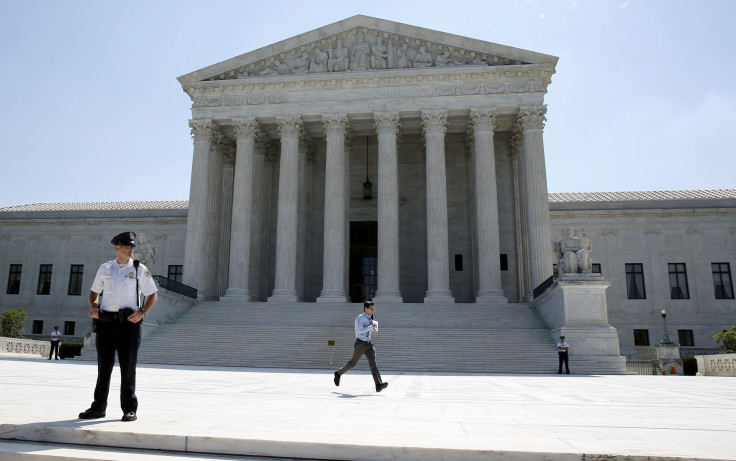Citizens United Lawsuit: How California Is Fighting The Supreme Court Ruling

One thing many Republicans and Democrats share is a desire to undo Citizens United, the 2010 U.S. Supreme Court decision that ruled corporations can spend unlimited money to support political candidates. While it doesn’t look like the highest court in the land will reverse that decision soon, some in California still want to voice their discontent.
The California Supreme Court was set to hear arguments Tuesday to decide whether the state can put before voters a ballot initiative denouncing the Citizens United decision. While the proposed vote would be largely symbolic, the push for the initiative and against the anti-tax political action committee that opposed the measure shows a continued dissatisfaction with the Citizens United decision five years after the court issued it.
“Anybody who pays attention to this, they know Americans overwhelmingly hate [the Citizens United ruling] the way they hate the devil,” said Bradley Smith, a law professor at Capital University in Columbus, Ohio, and a former Federal Election Commission chairman.
The case began when the Federal Election Commission blocked the conservative political action committee Citizens United from promoting a film critical of Hillary Clinton during the 2008 presidential race. It said the commercials were political in nature and required the group to disclose its donors. Citizens United sued, and the case went to the U.S. Supreme Court, which ruled corporations and unions can spend on advertisements as much as they want to help or hurt candidates running for office.
#Bernie Will seek Supreme Court that will overturn Citizens United
@FeelTheBernOrg #MSM #News #BernieSanders pic.twitter.com/8sxixnuIVS
— Bernie Universe (@BernieVerse) October 6, 2015
California legislators sought last year to ask on a ballot measure whether voters wanted to see the ruling overturned, but the anti-tax group the Howard Jarvis Taxpayers Association sued, saying the lawmakers don’t have the authority to put the issue on a ballot initiative. The conservative group also complained that the ballot initiative is an attempt to get more Democrats out to vote, although California already mostly sways left in national elections.
The vote would be the first of its kind in the nation and comes as the 2016 presidential campaign is expected to be heavily influenced by spending from political action groups. The ballot initiative could cause a domino effect across the nation — if a state like California, highly populated and wielding a lot of political power, could do something to show the federal government how much they dislike the Citizens United decision, it could influence other states to do the same, said Michael Malbin, a political science professor at the University of Albany in New York and co-founder of the Campaign Finance Institute, a research institution in Washington.
Welcome to the Fascist States of America
Corporations own the government
http://t.co/D5pMtbOHck pic.twitter.com/9TMLIwe3zN
— Ian56 (@Ian56789) October 4, 2015
The case for a ballot initiative comes amid continued opposition to the Citizens United initiative, which experts have said is a symbol of the wider dissatisfaction Americans have with campaign finance laws, including the limited disclosure of public financing. Democratic presidential candidates, including Clinton, who is now running again, and Sen. Bernie Sanders, have spoken out against the Citizens United decision.
“There is tremendous unhappiness, and you see it play out more and more,” said Kenneth Gross, a lawyer in Washington, D.C., who focuses on the regulation of political activity. Smith described the Citizens United decision as an all-purpose “boogeyman” most Americans tend to invoke when talking about campaign finance problems.
“There’s too much money in politics, the corporations are too powerful, the campaigns are too dirty,” Smith said. “These [problems] will exist even if Citizens United were overturned.”
© Copyright IBTimes 2024. All rights reserved.











